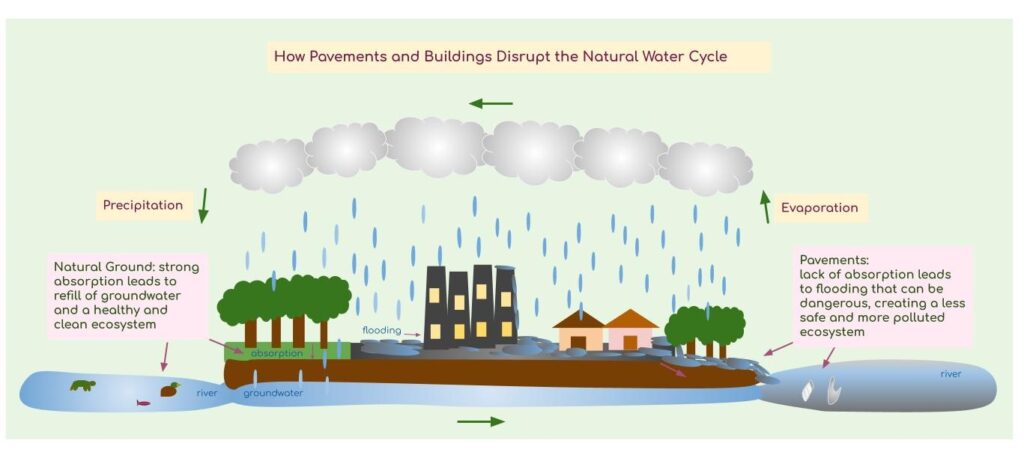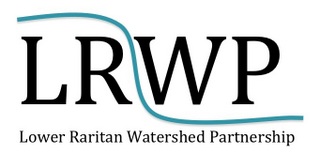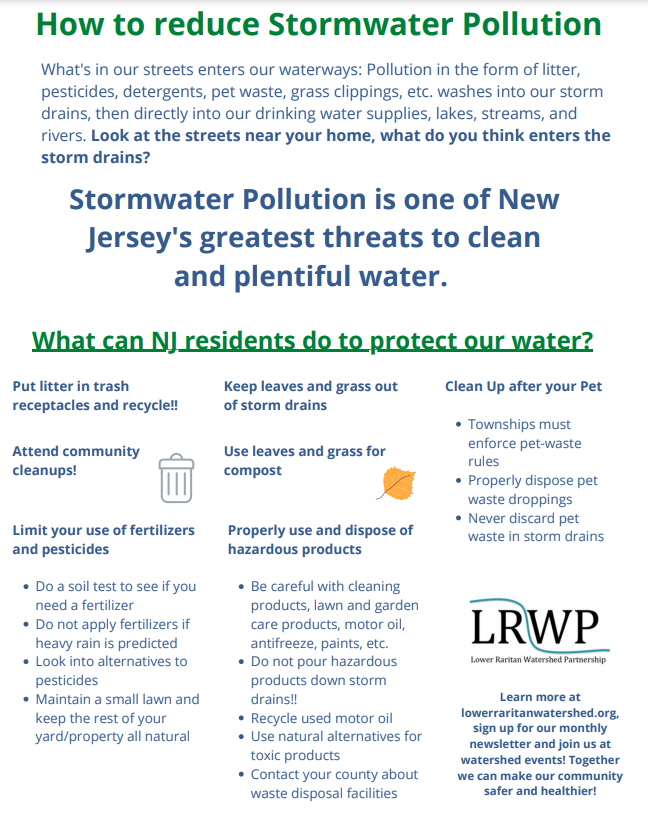Stormwater Management
What is stormwater pollution?

Stormwater Management Assistance for Municipalities
Through our fee-based MS4 Municipal Stormwater Management Assistance Program we customize stormwater outreach and education programs for municipalities to help them meet federally mandated requirements under the Clean Water Act.
Municipalities can tap up to 25% of their New Jersey Clean Communities allocated funds to support required stormwater education.
Here are a few examples of the direct assistance the LRWP can provide:
General Public Outreach (development of stormwater webpages, newsletters, materials sharing in kiosks and municipal spaces)
Target Audience Outreach (demonstrations at municipal festivals and events, educational program development for DPW and other municipal staff, #lookfortheriver community training)
School/Youth Education & Activities (direct engagement with youth via STEAM-based environmental education and programming using the LRWP’s Next Generation Science Standards Project WADES curriculum)
Watershed Regional Cooperation (stormwater management workshops for continuing education credits, programming on stormwater utilities, programming on integrated urban watershed management)
Community Involvement Activities (community clean-ups, stormwater management plan development, rain garden builds, impervious cover removal, and more!)
Contact us for more information!
What can I do to prevent stormwater pollution?

